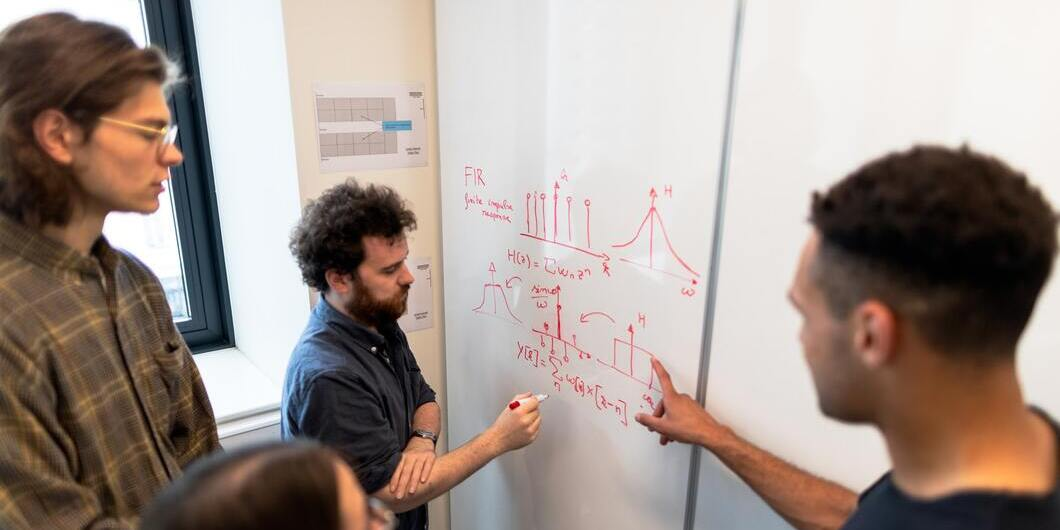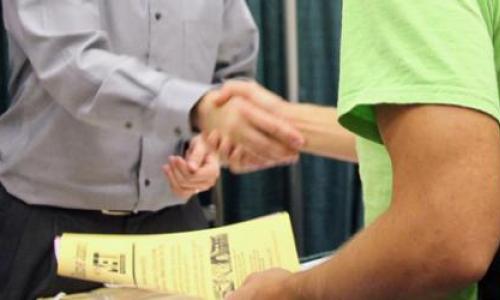
This article provides a few tips to improve your co-op search. Having completed co-op with a few different companies, I’ve learned methods that have helped me get those co-op offers. Some of the tips may sound cliché, but, I felt they were relevant in helping me get my co-op positions. The tips were certainly not the deciding factors for landing my co-op positions. In fact, they may be minor details, but when these little things add up, they can improve one’s chances by a margin.
Co-op is a fantastic way for students to gain knowledge and practical skills, which may not be gained in the classroom. While they are great learning opportunities, they are sometimes difficult to find, especially the first co-op position.
What makes co-op so difficult to find you might ask? It is because companies receive a ton of applications for each co-op position. From the companies that I worked with, I’ve been told that I was competing against 60-80 other applicants. Of which only five would be selected for interviews. From selecting five out of eighty, to selecting one out of the five for the job, the chance of getting the position is not statistically in your favor. When an employer has to look through 60-80 applications, they may skim through resumes and cover letters very quickly.
So, in the instance you don’t get an interview, it doesn’t always mean your skills or resume/cover letter were not good enough, the person reviewing your application may have just missed some of your skills.
One thing to note is that because there are so many applicants, some employers will throw out applications if they have spelling and grammar mistakes, or incorrect sentence structure -- even if you do have the skills the company is looking for. These mistakes tell them that you don’t care enough about the position to double-check your application before sending it. So, if you have trouble with writing, it is important to get your writing skills on par (ironic because I struggle with this). A few ways to do this would be to seek feedback from your Co-op Coordinator, get a peer to look over your resume, or get a tutor to help you out.
Because a lot of companies are looking for students with past co-op experience, it can be especially tough to land a position when you are applying for your first co-op. If you are really struggling to find one, I suggest applying for research positions at SFU or taking on your own personal engineering project.
Now there will be some students who will be hesitant to apply for research positions due to the low pay in contrast to jobs within the industry. However, a research position can provide a ton of learning opportunities that will lead to future positions. I highly recommend this strategy for your first co-op. During my first co-op work search I struggled to even get interviews. Out of thirty applications sent for my first co-op, I was only able to secure two or three interviews, which still didn't lead to a co-op position. This led me to try out a university research position. After gaining that experience my next co-op search landed me many more interviews, and I was able to land a second co-op shortly after. I believe just having that work experience in your resume helps greatly.
That is not to say that all you need is to have work experience on paper. If you don’t know what you’re talking about in your interviews, you will be exposed by the interviewers. So, my next tip is to learn as much as you can, ask a lot of questions, and pick up a lot of knowledge. Many interviews that I’ve gone to have asked me about my past co-op experience. If you’ve done nothing in your past co-op, you may have screwed up that question. When you do talk about your past co-op experiences, show excitement and enthusiasm. It shows your interviewers how much you enjoyed your previous positions and they’ll be more likely to choose you.
From past interviews, I learned that you should never give up on technical questions. During the interview of my current co-op, I got half the answers wrong for all of the technical questions. The other half I couldn’t answer completely BUT when I was asked those questions, I didn’t show signs of giving up. For each question, I spent a lot of time thinking. When I knew I didn’t know the answer to the question, I didn’t say to the interviewers “I’m not sure” (although I have done that in the past). Instead, I continued to think about the question, asked the interviewers questions, and tried different approaches to solving the problem.
Don't just sit there pretending to think and wait until the interviewers reveal the answer. Tell them about your thinking process, ask questions, suggest answers (if you get it wrong, keep thinking about another answer, don’t go “okay, what’s the answer?”). Even though it’s a co-op job, if I got the position without answering the technical questions correctly, it just shows how important persistence is. For the interviewers, they’re hiring a co-op student, so they’re not expecting the candidate to know everything. They are looking for someone who is willing to learn during their time in co-op.
Lastly, on thank you letters: if you’re struggling to find a co-op position and are getting desperate, or if you really want the position, then start writing them. There are no downsides to writing thank you letters, and it shows your appreciation to the interviewer.
Beyond the Blog
-
To learn more about opportunities for Mechatronic Systems Engineering students visit the Engineering Science Co-op homepage.














